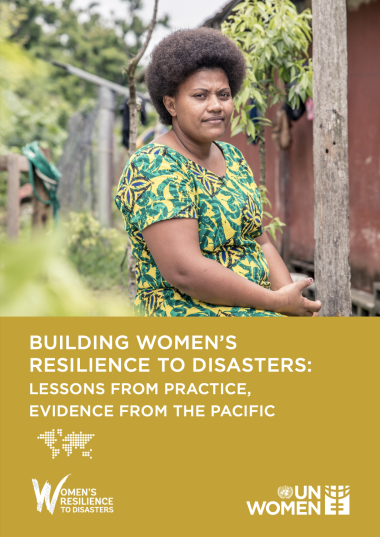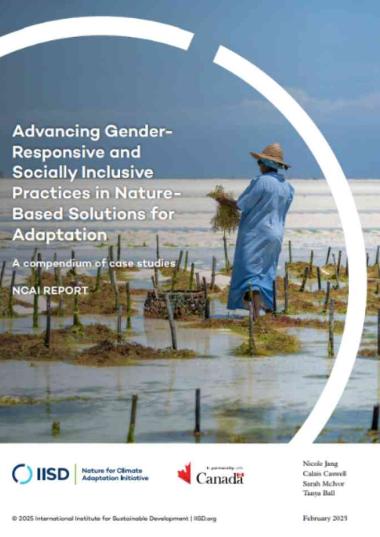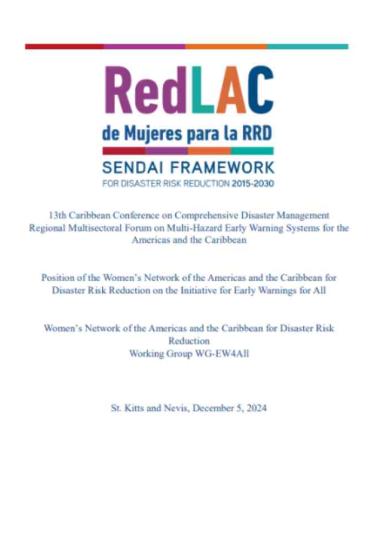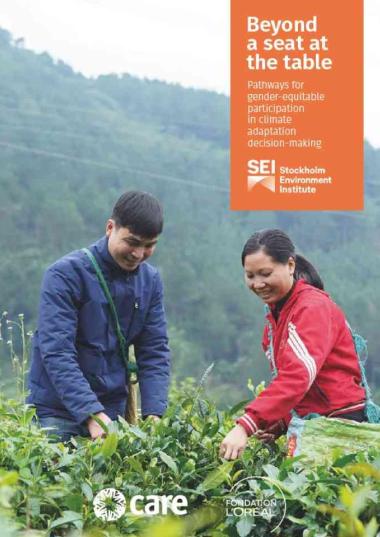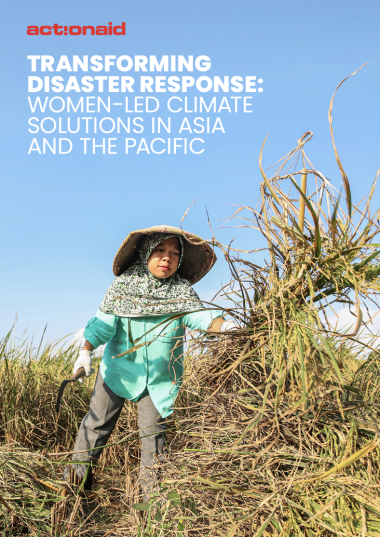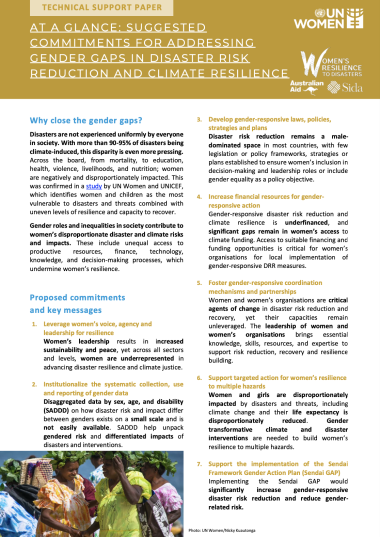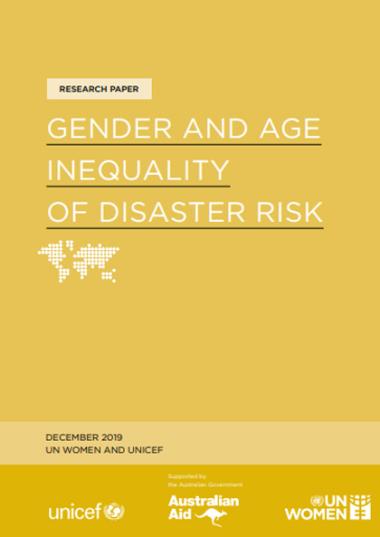
Women's leadership and gender equality in climate action and disaster risk reduction in Africa
November 2021
This report explores the key roles that rural women in Africa play in food systems, agrobiodiversity conservation, natural resource management, food production, preparation and marketing and the impacts that they disproportionately suffer due to limited access and control over resources fundamental to adaptation and limited participation in decision-making processes. Similarly, they lack equal access to productive resources needed for agricultural livelihoods and are often the last to eat when food is scarce. Decision-making and leadership in climate action and governance are also male-dominated and the decisions are less likely to respond to women’s needs and wants. Rural women also suffer from disparities in literacy and technological access.
This report recommends a number of policy actions for gender-responsive climate action and disaster risk management. Actors must increase women’s leadership and decision-making in climate change and disaster risk reduction 9DRR) by supporting and promoting women’s participation in decision-making processes in DRR and climate action and promoting and nurturing the leadership of diverse women (across generation, sociocultural, ethnic and religious backgrounds) and women’s rights organizations. Country institutions and technical and financial partners must develop their climate-smart agriculture initiatives and climate finance programmes and projects with dedicated designs for women's participation and empowerment. Government must move to improve policies to address climate change and disaster risk while building institutional and individual capacity for mainstreaming gender into climate action and DRR. Finally, women’s access to information and technologies must be improved alongside data systems for informed decision-making and better monitoring.
